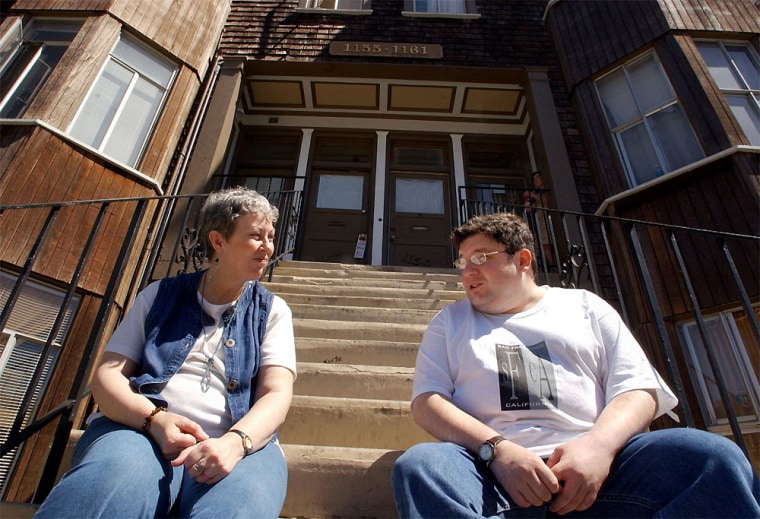As pressures increase on California’s mental health system, its workers and advocates say they are forced to do more with a supply of money that seems to shrink each year.
“The number of people who need services is growing. The cost of the services is growing. The revenue source is not growing,” said Patricia Ryan, executive director of the California Mental Health Directors Association.
A possible solution? A measure on the November ballot that would dramatically bolster the flagging system by pouring in hundreds of millions of dollars and asking the wealthy to pick up the tab.
If passed, Proposition 63 would mandate that anyone with a net income of more than $1 million be taxed an additional one percent on every dollar earned beyond the first million.
The Legislative Analyst’s Office estimates the measure would raise $275 million in 2004-05, swelling to $750 million the next year and $800 million thereafter. A newly created commission would oversee the distribution of the funds to counties that submit spending plans.
The measure’s proponents have raised about $2.3 million so far, with top donors ranging from the Service Employees International Union and the California Teachers Association to the Morongo Band of Mission Indians.
Opponents of the measure, who have raised about $5,000, say it’s well intentioned but short sighted, unfairly singling out an already dwindling category of taxpayers who didn’t create the problem.
An estimated 25,000 to 30,000 Californians would be affected by the tax, according to the Legislative Analyst’s Office, a number that opponents say may drop as the wealthy head for more tax-friendly states like Nevada and Florida.
“We don’t need any more tax increases,” said Jon Coupal, president of the Howard Jarvis Taxpayer Association. “If these mental health programs are that valuable, then they should have a priority on existing revenues, not a higher tax increase. California is already a high-tax state.”
Dealing with budget cuts
The measure comes as counties statewide cut their budgets to deal with limited revenues. A $28.6 million cut in Los Angeles county left thousands of uninsured without some services. A $2.6 million reduction in Orange County’s 2004-05 budget will leave 500 people with less access to services. San Luis Obispo County cut its budget by $1 million.
“Mental health is most always one of the first things on the chopping block when it comes to state and local budgets,” said Assemblyman Darrell Steinberg, a proponent of the proposition.
For Progress Foundation, which gets about 30 percent of its money from the city and county, additional money would mean it could provide more residential housing, where patients like Carrie McGinniss, 55, can get a chance to recuperate and rebuild while still maintaining their independence.
McGinniss, who is bipolar, is one of an estimated 2 million in the state who suffer from some form of mental illness. She used to be one of an estimated 55,000 homeless who are also mentally ill, but she has lived at a Progress Foundation house for the last eight years.
She said she’s frightened of losing the home she now shares with four others, the room she has decorated with pictures of friends, artwork and dozens of stuffed animals.
“If I end up on the streets, what faces me ultimately is death because I know I cannot survive on the streets,” she said. “There are many people like me.”
